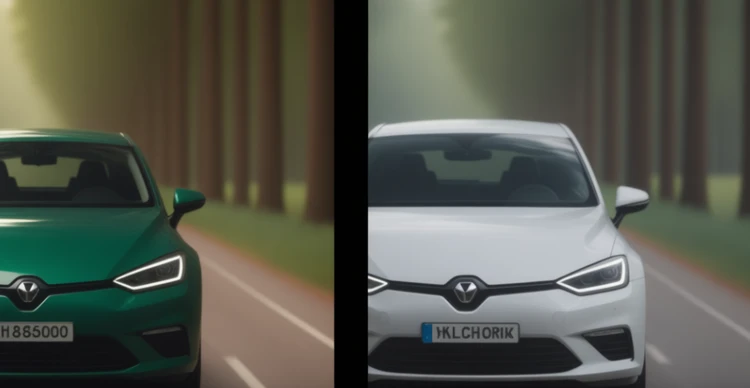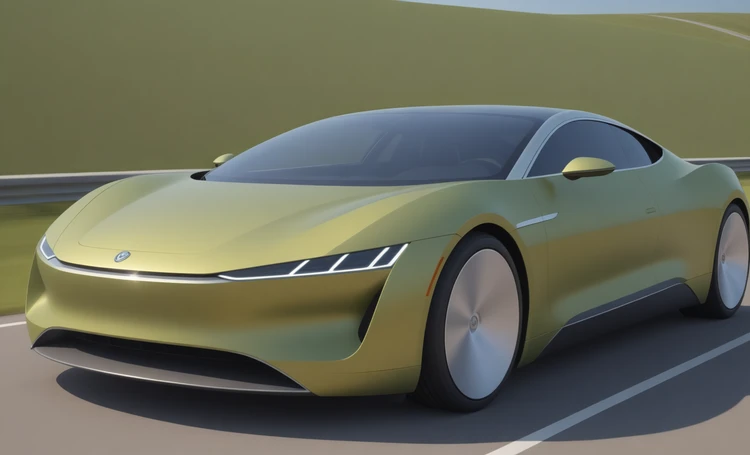🌿 Automotive technology and ecology: how do cars affect the environment?
The issue of ecology is becoming increasingly relevant in the context of the development of automotive technologies. Every year, automakers and developers pay more attention to creating environmentally friendly and efficient cars. If you are interested in eco-friendly solutions for your car, here you will find eco-friendly car accessories.
🚗 The impact of cars on the environment
Cars have a significant impact on the environment, especially in large cities.
Carbon emissions
- Major Source of Pollution: Internal combustion engines of traditional vehicles are major sources of CO2 emissions.
Air pollution
- Emissions of harmful substances: Vehicles running on gasoline and diesel emit harmful substances into the atmosphere, such as nitrogen oxides and particulate matter.
🌱 Environmental initiatives in the automotive industry
Top car manufacturers are actively introducing environmentally friendly technologies and strategies to reduce the impact of vehicles on the environment.
Development of electric vehicles
- Zero Emissions: Electric vehicles produce zero emissions, making them an environmentally preferable option.
Use of alternative fuels
- Biofuels and hydrogen: Development of technologies that enable the use of renewable energy sources such as biofuels and hydrogen fuel cells.
🌍 Global environmental standards and regulations
Tightening international environmental standards and regulations has a significant impact on the development of automotive technologies.
European standards Euro 6/7
- Strict emissions requirements: The new Euro 6/7 standards set strict limits for harmful substances, which encourages manufacturers to develop cleaner engines.
Initiatives to reduce carbon footprint
- Carbon Neutrality Goal: Many countries and companies are setting a goal to achieve carbon neutrality, which involves developing and implementing environmentally friendly technologies.
💡 Innovative technologies in cars to protect the environment
The development of new technologies in automobile construction takes into account environmental requirements and is aimed at minimizing the harmful impact on the environment.
Exhaust gas purification technologies
- Filtration systems: Modern cars are equipped with sophisticated exhaust filtration systems that significantly reduce pollution levels.
Improved fuel efficiency
- Efficient Engines: Manufacturers are striving to develop engines with improved fuel efficiency, resulting in lower overall emissions.
🚀 Technologies of the future: sustainable development in the automotive industry
Advances in automotive technology promise to further reduce the environmental impact of automobiles in the future.
Autonomous vehicles
- Reduced emissions: Autonomous vehicles can help improve transport efficiency and reduce emissions by optimizing routes and speeds.
Integration with smart city technologies
- Smart Traffic Management: Smart traffic management systems help reduce traffic congestion and consequently air pollution.
Public involvement and raising awareness of the importance of environmental responsibility play a key role in protecting the environment.
Sustainable Development Programs
- Environmental education: Programs aimed at increasing awareness of the importance of using environmentally friendly vehicles and technologies.
Partnerships and collaborations
- Global Partnership: Collaboration between automakers, governments and environmental organizations to develop and promote sustainable transportation solutions.
🌐 The impact of international environmental agreements on the automotive industry
International environmental agreements have a significant impact on standards and practices in the automotive industry, guiding its development towards sustainability and environmental friendliness.
Global environmental initiatives
- Reducing Greenhouse Gas Emissions: Countries and companies around the world are committing to reduce CO2 emissions, spurring the development of cleaner vehicle technologies.
Adaptation to climate change
- Advancing Sustainable Transportation: Increased attention to climate change issues requires automakers to create cleaner, more efficient vehicles.
📊 Expected changes in the car market
Current trends and forecasts indicate significant changes in the automobile market in the coming years, especially in the context of environmental requirements.
The rise in popularity of electric vehicles
- Increasing share of electric vehicles: Electric vehicles are expected to continue to increase their market share as they become more affordable and practical.
Innovation and new solutions
- Development of hybrid and alternative technologies: Manufacturers are exploring various ways to create environmentally friendly vehicles, including hybrid models and the use of alternative energy sources.
🌿 Conclusions and recommendations
Automotive technology and ecology are closely linked, and the future of automotive manufacturing is inextricably linked to sustainability and environmental stewardship. This requires automakers, lawmakers and consumers to actively collaborate and implement innovative solutions to create a cleaner, safer future.


